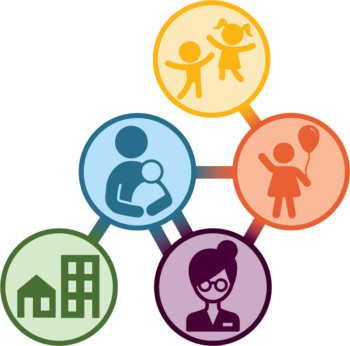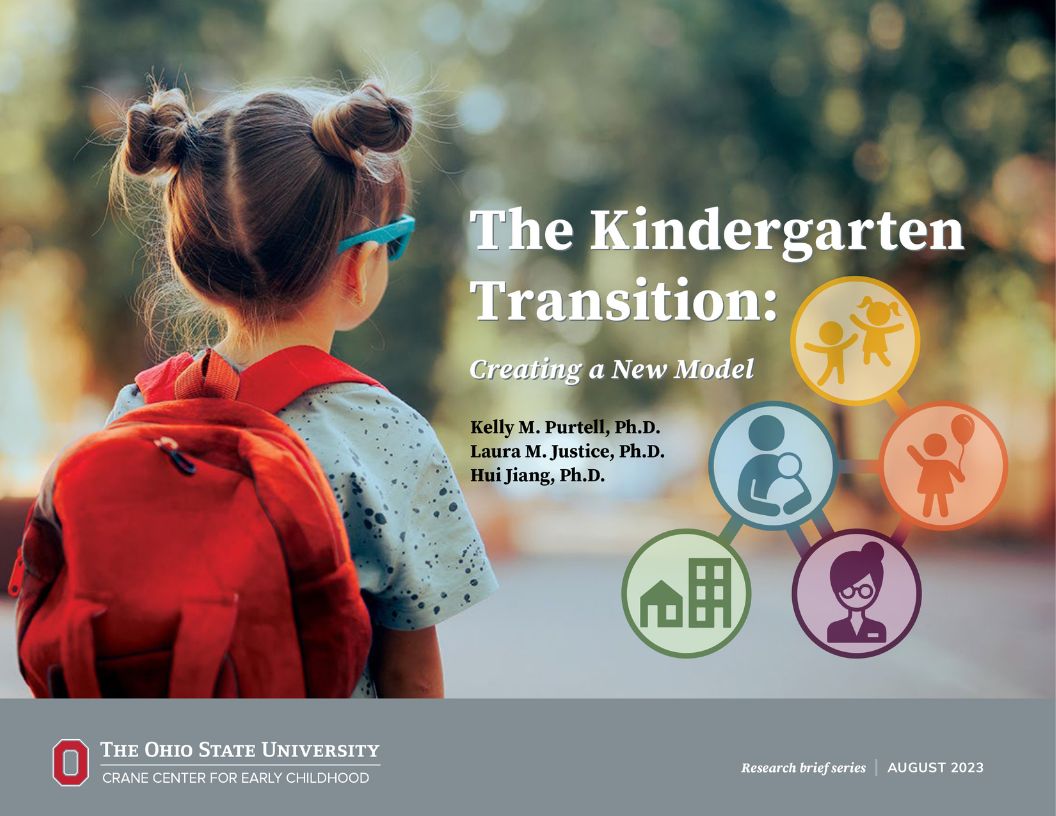Research Brief
Authors: Kelly M. Purtell, Ph.D., Laura M. Justice, Ph.D., and Hui Jiang, Ph.D.
The entry into kindergarten is a key transition for young children and has lasting consequences for their learning, social development, and success in school over time. Despite being common, this transition can bring many challenges for families and children alike.
Crane Center researchers recently developed the Kindergarten Transition Intervention, a new model that expands upon the kindergarten transition framework developed by Dr. Robert Pianta and Dr. Sara Rimm Kaufman.
The model focuses on developing and strengthening six specific connections starting in the children’s last year in preschool and continuing through their first six months in kindergarten.
SIX CONNECTIONS:

Child-Parent Connections
Parent-Teacher Connections
Child-Peer Connections
Child-Teacher Connections
Teacher-Parent Connections
Parent-Community Connections
Central to the model is the role of a transition coordinator – acting to strengthen the six connections as a facilitator to help teachers, administrators, and families partake in intervention practices. To further support connection building, a home-based component was added to the model.
Early evidence from Crane research shows that the model does increase preschool teachers’ perceptions of parental involvement, suggesting that stronger connections are being formed that can ultimately help children through the transition.
DID YOU KNOW… that the Crane and Schoenbaum Centers have an entire body of work on the transition to kindergarten? From research to practitioner notes to tips for parents, the collective body of work aims to deepen our understanding and better support all children during this important transition.









